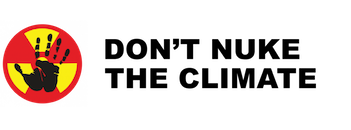SUR Research Reactor Kiel
- SUR KIEL Reactor in Nucleus IAEA-Database (IAEA Code DE0022)
- Status: decommissioned[1]
- start of construction: 01/04/1965[1]
- first criticality: 29/03/1966[1]
- neutron reflector: graphite[1]
- control rods: 2[1]
- reactor type: HOMOG (S)[1]
DRAFT, unsorted collection of data and bad translations
Technical Data:
- Location: Germany, Schleswig-Holstein, Kiel, Legienstraße 35 GPS ?
- Operator: University of Applied Sciences (Fachhochschule Kiel) [2]
- Type of reactor: HOMOG (S) / SUR (german: Siemens Unterrichtsreaktor meaning Siemens education reactor)[1]
- Name SUR Kiel[1]
- Fuel: about 3,4 Kg (typically for SUR, number not checked for SUR-KI !) U3O8 dispersed in Polyethylene
- Enrichment: 20% 235 U (typically !)
- Waste: Uraniumoxide/PE-boards ? boric acid water was clearance measured, graphite reflector and lead shield ?
- Accidents: ?
- Capacity / effectiveness: 0,1
- Constructor: Siemens
- Number of Operators: 4[1]
- max. flux ss, thermal: 5*10 6 n/cm 2 -s[1]
- max. flux ss, fast: 1,0*10 7 n/cm 2 -s[1]
- moderator material: Polyethylene[1]
about SUR Hamburg
- Educated were students of "common engine construction" ("allgemeiner Maschinenbau") and "apparatus construction and nuclear technology"
Summary
The Siemens Education Reactor was located central in Kiel, the regional capital of Schleswig-Holstein in Germany. It was operated by university of applied sciences from the first criticality in 1966 to the end of decommission in 2008. This type of reactor was constructed only for education purposes and needed in contrary to power reactors or research reactors energy input for starting and holding the nuclear chain reaction. In cause of this it had no cooling system. The fuel consisted of stacked boards of high enriched Uraniumoxide U 3 O 8 with enrichment of the Isotope 235 U to 20 % dispersed in and Neutrons moderated by Polyethylene.
History
The construction started at April 01, 1965 and achieved first criticality at March 29, 1966. Responsible instructor and advisor was Prof. Freund. Responsible authoritys were IAEA, Euratom, federal office of radiation protection and the local financial ministry department and was checked every year by IAEA-Officers. Operation was shut down about 1990/1991. During decommissioning the nuclear fuel was dismounted under survey of IAEA-Officials and the boric acid solution was clearance measured.
Note: I'm unfortunately not allowed to publish the source of some information I wrote above, I'm still searching for quotable...
technical mode of operation
translation from wikipedia [3] unfortunately only available in german
The SUR is a Zeropowerreactor with continuous power of 0,1 W, peak power 1 W and was conduced only for education purposes. Load is about 3.4 Kg Uraniumoxide being enriched at 20 % 235 U. Caused by marginal power even in fission area there is nearly no increase of temperature, so a cooling system is needless. In cause of the low power there is nearly no combustion.
summary and translation of memories of a nuclear physicist of same type reactor have been used in Hamburg, follow the links for watching
[4] unfortunately only available in german
- The SUR wasn't constructed for producing electricity or for research but only for education. Physical it is a real nuclear reactor, but the produced power is as low as there is no increase of temperature measurable while operating. Therefore a cooling system is needless. The fission area was consisting of stacked boards made of a homogeneous mixture of Polyethylene and Uraniumoxide U 3 O 8 enriched to 20% 235 U.
In spite of everything it is a real nuclear reactor with nuclear chain reaction regulated by regulator boards and other absorber.
Note: detailed operation function coming soon
Links
Open questions / to do
- check real core load
- check GPS Position
- organize Picture of reactor
- amount of waste, where stored?
- History, accidents => search for quotable sources
- check archive of local newspaper
- make real sentences at translations
- check which education projects / study course
References
<references>
- ↑ 1.00 1.01 1.02 1.03 1.04 1.05 1.06 1.07 1.08 1.09 1.10 1.11 http://nucleus.iaea.org/RRDB/RR/HeaderInfo.aspx?RId=90 as at September 26, 2012
- ↑ http://www.fh-kiel.de as at April 24, 2013
- ↑ http://de.wikipedia.org/wiki/Siemens-Unterrichtsreaktor as at April 24,2013
- ↑ http://www.mp.haw-hamburg.de/pers/Kaspar-Sickermann/sur/dsur1.html as at April 24, 2013

